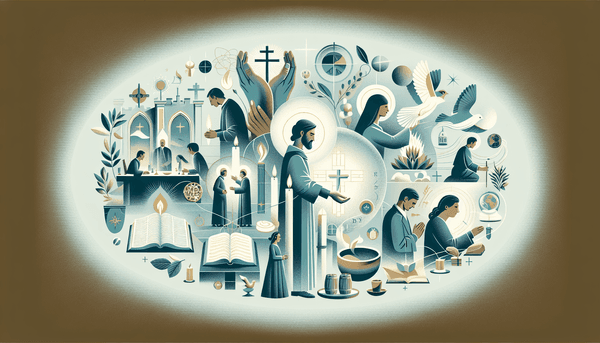Homosexuality and the Bible
Discussions around homosexuality often reference passages such as Leviticus 18:22 and Leviticus 20:13, where sexual relations between men are explicitly condemned. However, understanding these verses requires an exploration of ancient Israelite culture and the subsequent layers added by centuries of translation. In the New Testament, Romans 1:26-27 describes same-sex relations in a negative light, but again, interpretation is key. Some denominations argue that these passages speak to specific historical contexts, not timeless moral codes. Others hold a traditional view, emphasizing the literal text. Regardless of stance, the gospel message to 'love your neighbor as yourself' (Matthew 22:37-39) and to recognize that 'there is neither Jew nor Gentile... for you are all one in Christ Jesus' (Galatians 3:28) remains central to the debate.
Sin and Nationalism
Nationalism is not directly addressed in Scripture, but biblical principles on identity and community offer insights. The early Christian church was inclusive, transcending ethnic and cultural boundaries, as reflected in Galatians 3:28. Christians are called to a higher citizenship in heaven, according to Philippians 3:20, and Jesus reminded us to 'give to Caesar what is Caesar's, and to God what is God's' (Matthew 22:21). While national pride is not inherently sinful, it becomes problematic when it leads to the exclusion or idolization of earthly kingdoms over the Kingdom of God. The vision in Revelation 7:9-10 of a multiethnic assembly worshiping together serves as a powerful reminder of the ultimate unity and diversity within God's kingdom.
The Sin of Racism
Racism directly contradicts the biblical assertion that all humans are created in the image of God (Genesis 1:27). This understanding is deepened when considering the broader context of biblical principles that guide our daily lives, as the New Testament continues this theme, evident in Acts 10:34-35, where Peter realizes that 'God shows no partiality.' Paul's letter to the Galatians (Galatians 3:28) further supports the equality and unity of all believers in Christ. The sin of favoritism is condemned in James 2:9, and the Book of Revelation (7:9-10) offers a prophetic vision of a church that includes every nation, tribe, people, and language. These verses form the foundation of the Christian mandate to love and serve all people, advocating for justice and equality, reflecting God's love for every individual.
Conclusion
As we reflect on the issues of homosexuality, nationalism, and racism through the lens of Scripture, it is crucial to approach these texts with humility and a yearning for true understanding. The Bible's core message is one of love—love for God and for our fellow humans. This transcends all cultural norms, legalistic interpretations, and societal constructs. By engaging in respectful dialogue and embodying Christ's love in our actions, we can strive for unity within the diverse body of believers and beyond, bringing light to a world that is in desperate need of compassion and reconciliation.
FAQ
Q: Where does the Bible say homosexuality is bad?
A: Passages commonly referenced are Leviticus 18:22, Leviticus 20:13, and Romans 1:26-27. However, interpretations vary among denominations, and some argue these texts are not relevant to current understandings of human sexuality.
Q: Ist es eine Sünde, Nationalist zu sein?
A: Die Bibel verurteilt Nationalismus nicht direkt, aber Christen werden ermutigt, ihre Identität in Christus über nationale Identitäten zu stellen (Galater 3:28, Philipper 3:20).
Q: Ist es eine Sünde, Muslime zu beleidigen oder sie auszugrenzen?
A: Die Bibel lehrt, dass wir unseren Nächsten lieben sollen wie uns selbst und dass wir denen, die uns nicht lieben, mit Liebe begegnen sollen (Matthäus 5:44). Daher ist es nicht im Einklang mit den biblischen Lehren, Muslime zu beleidigen oder auszugrenzen.
Q: Ist es eine Sünde, rassistisch zu sein?
A: Ja, Rassismus widerspricht den Lehren der Bibel, die besagen, dass alle Menschen als Ebenbilder Gottes geschaffen wurden (Galater 3:28, Jakobus 2:9).






